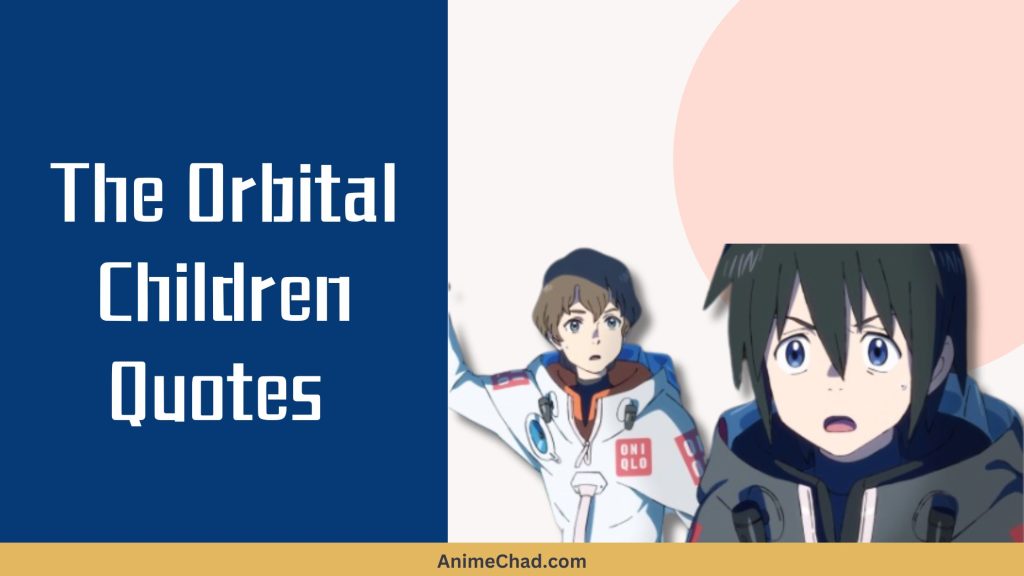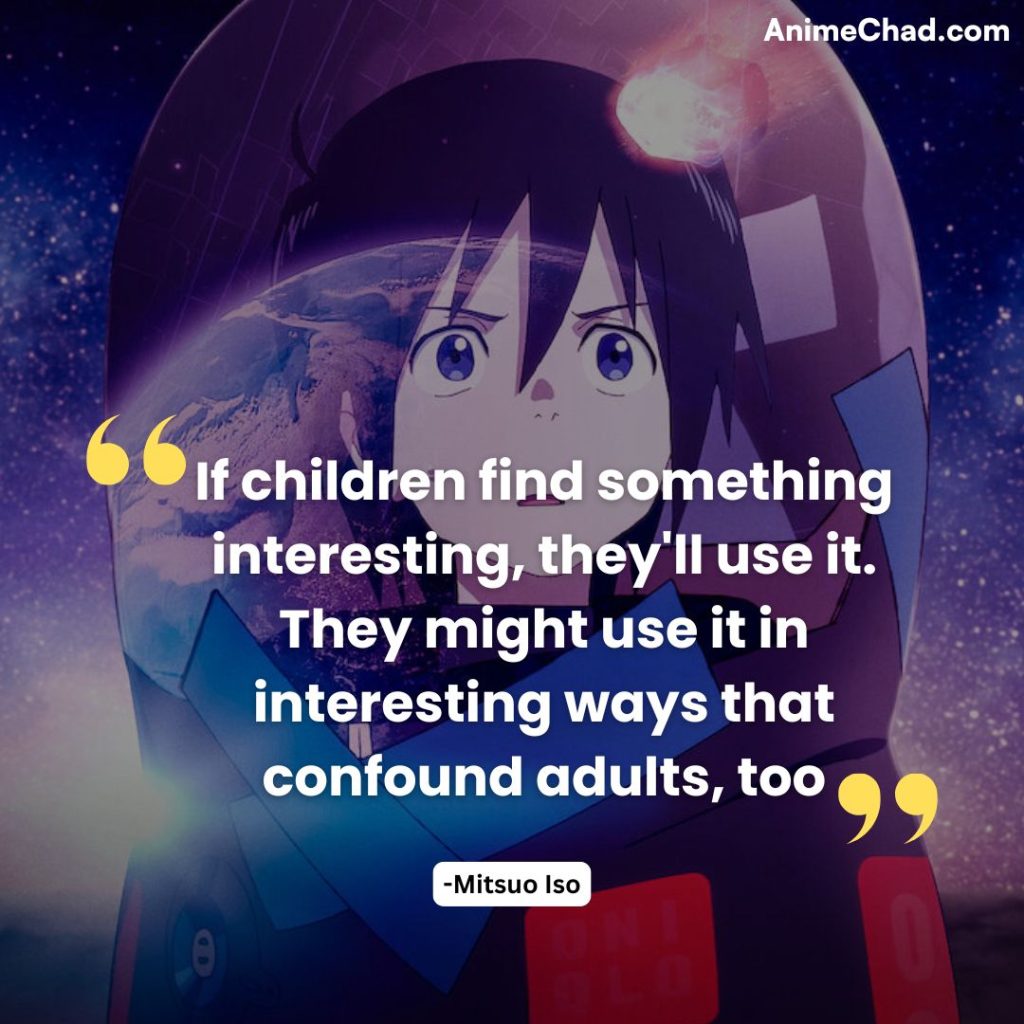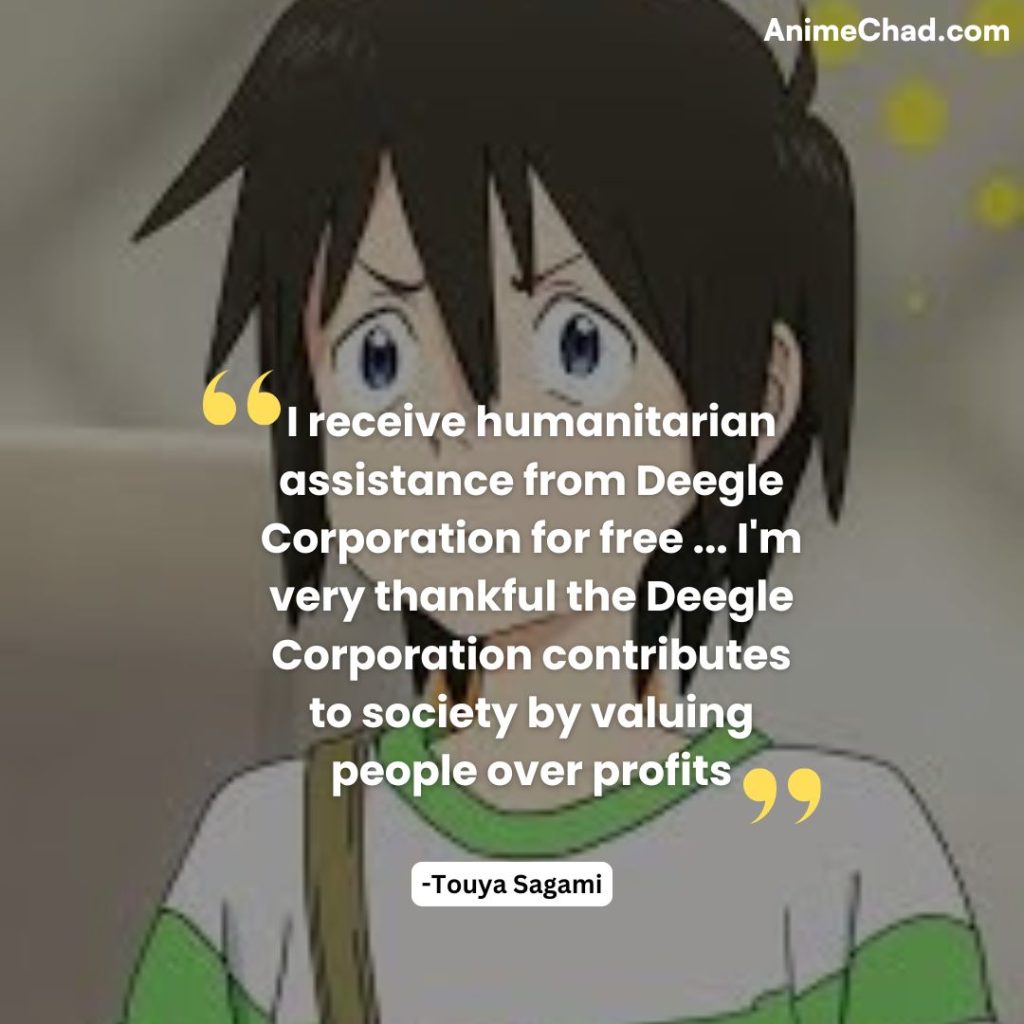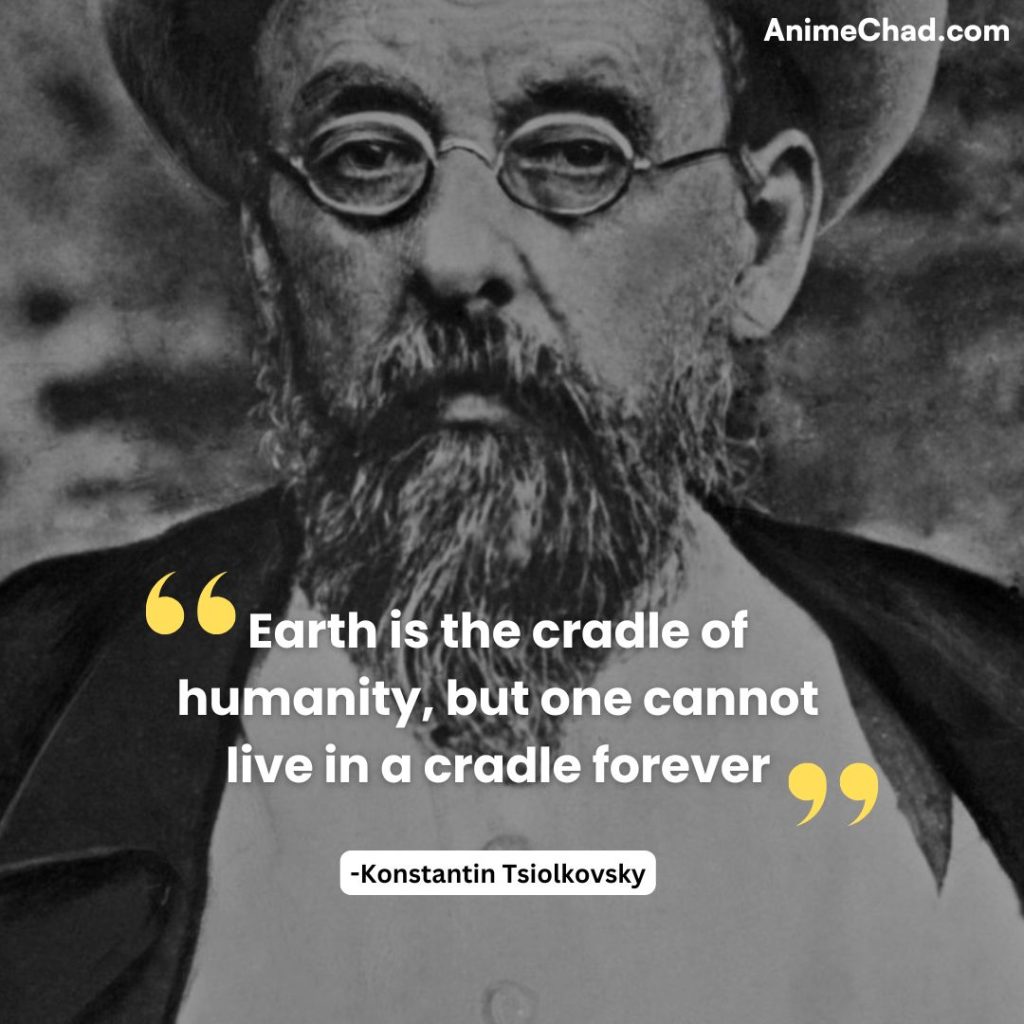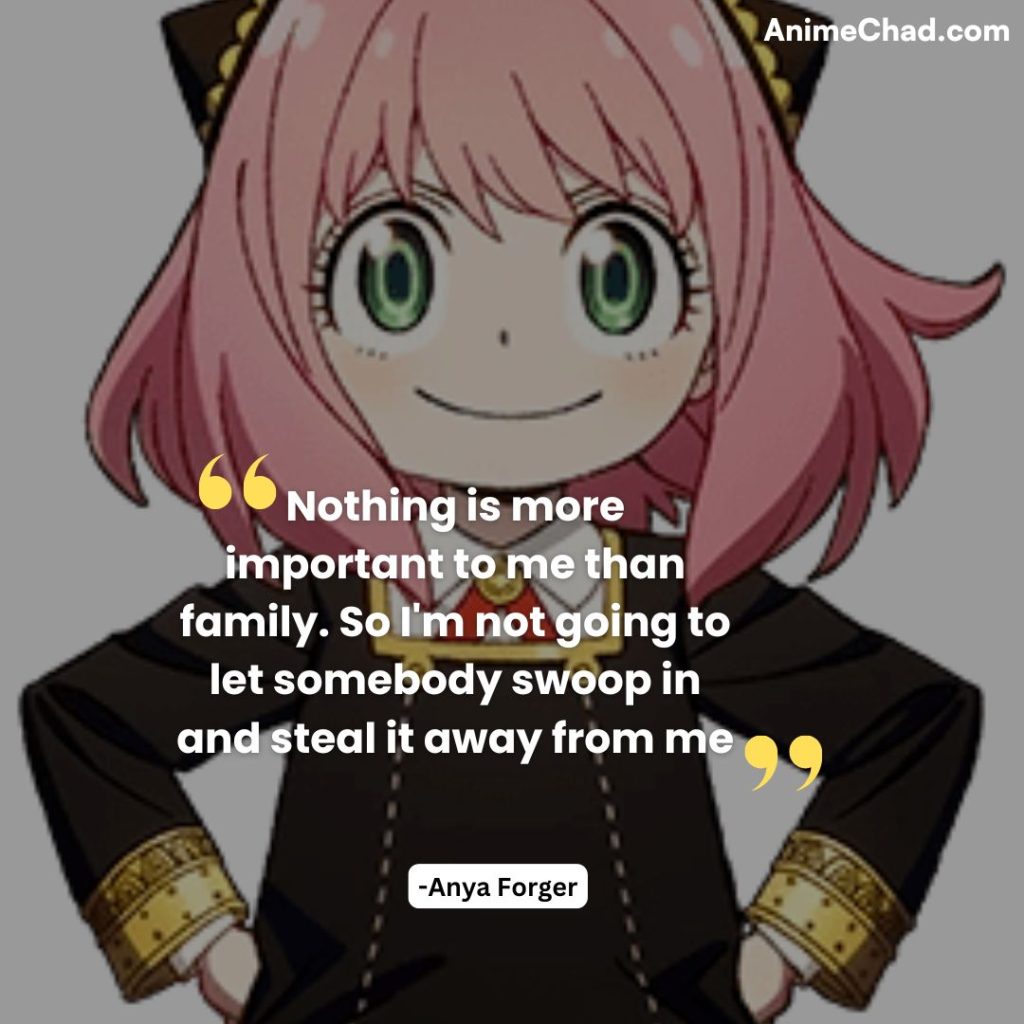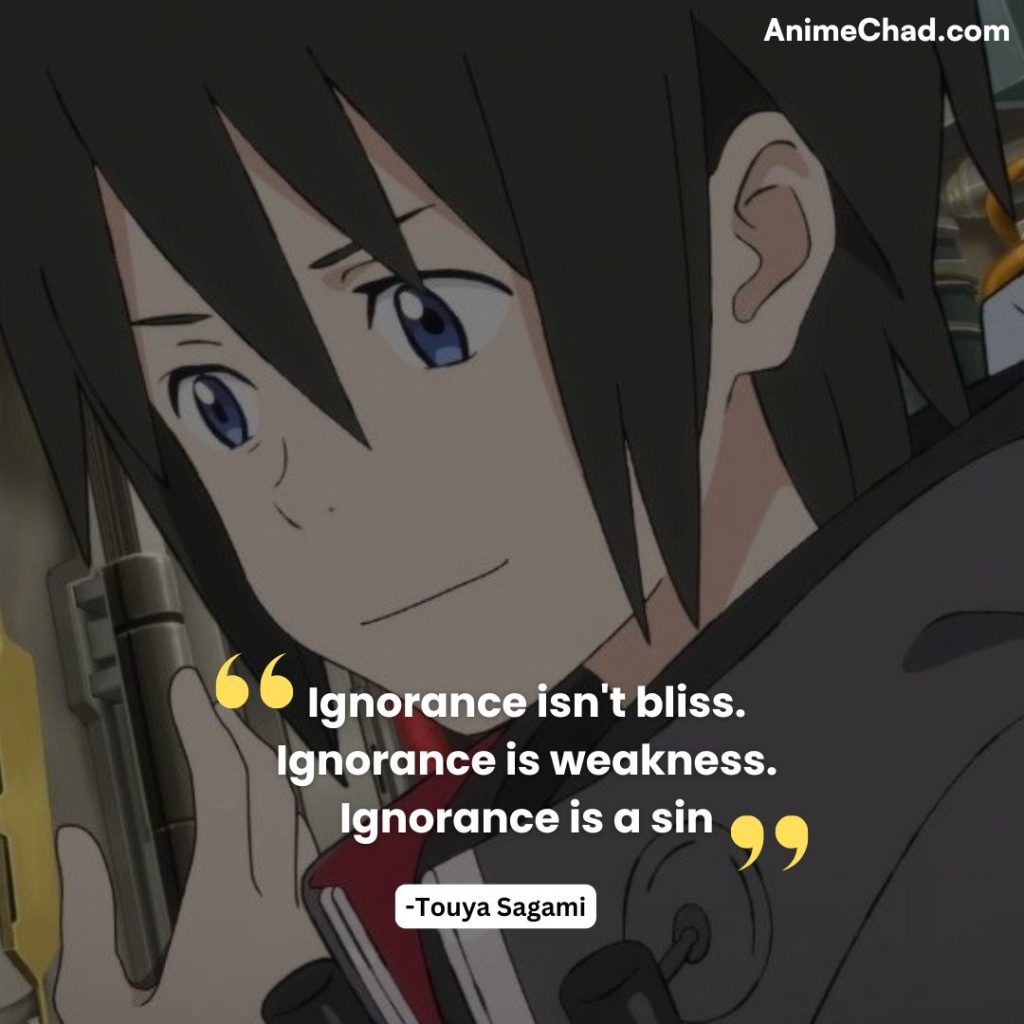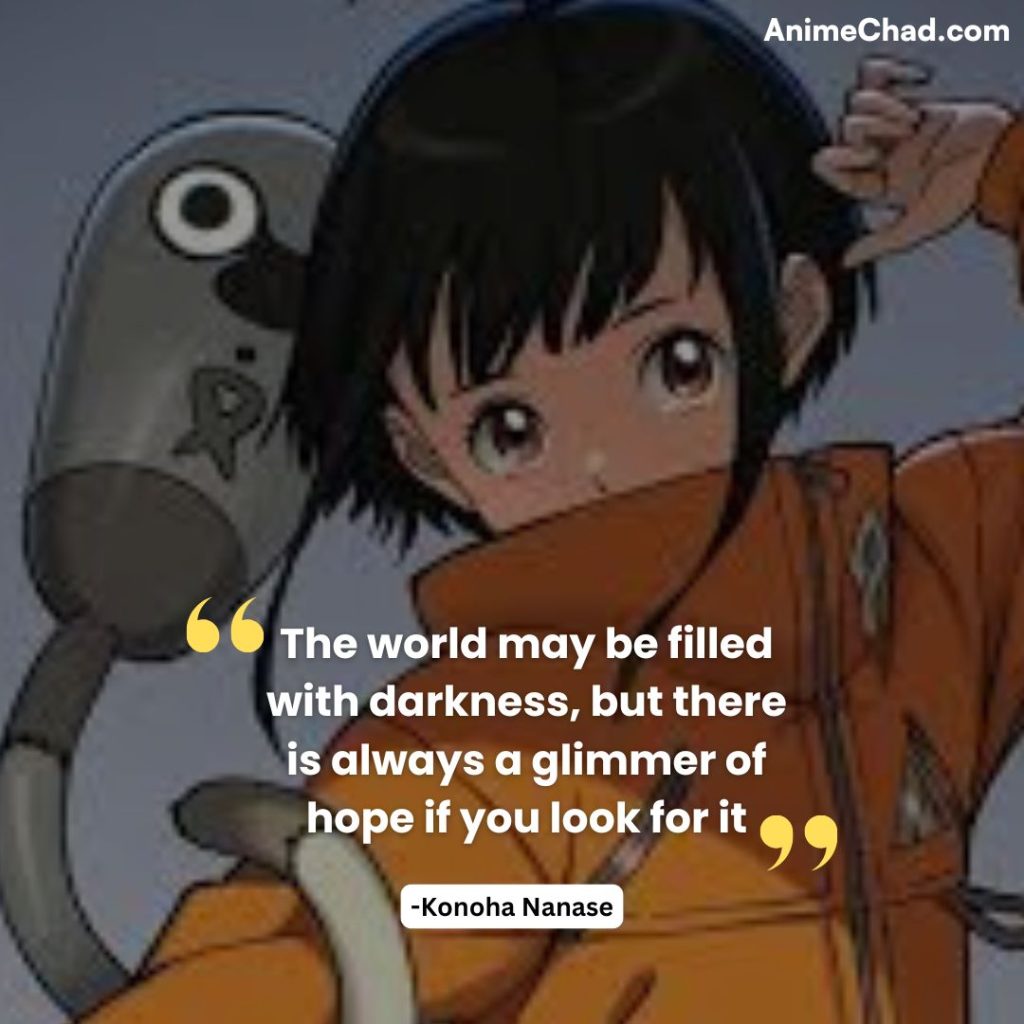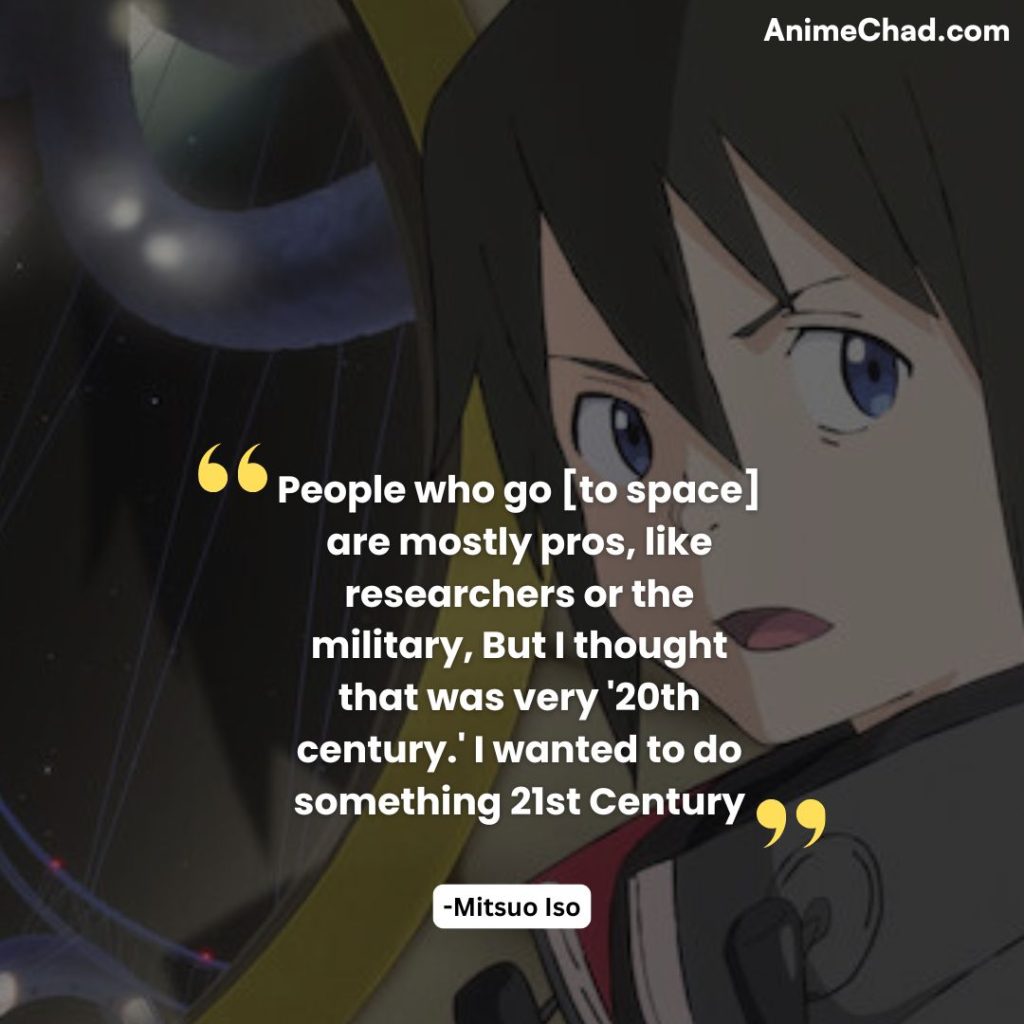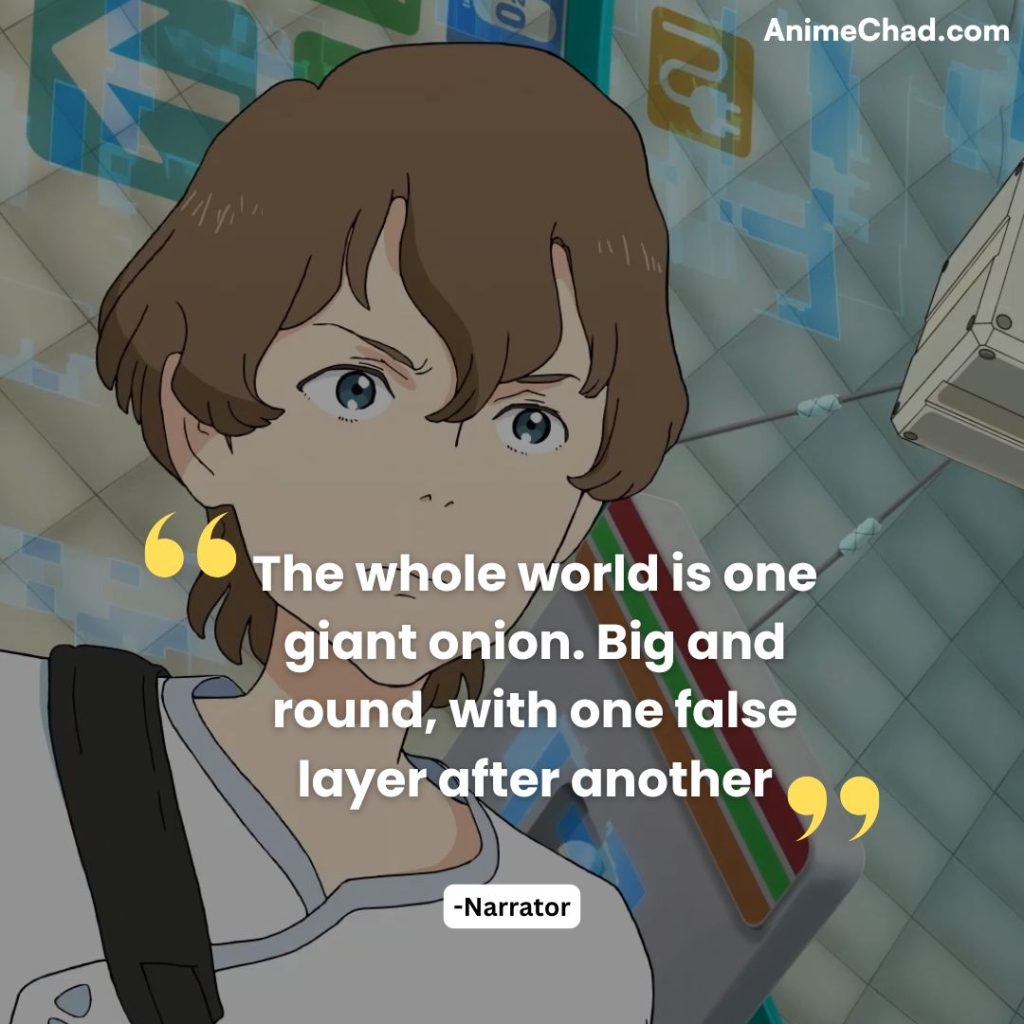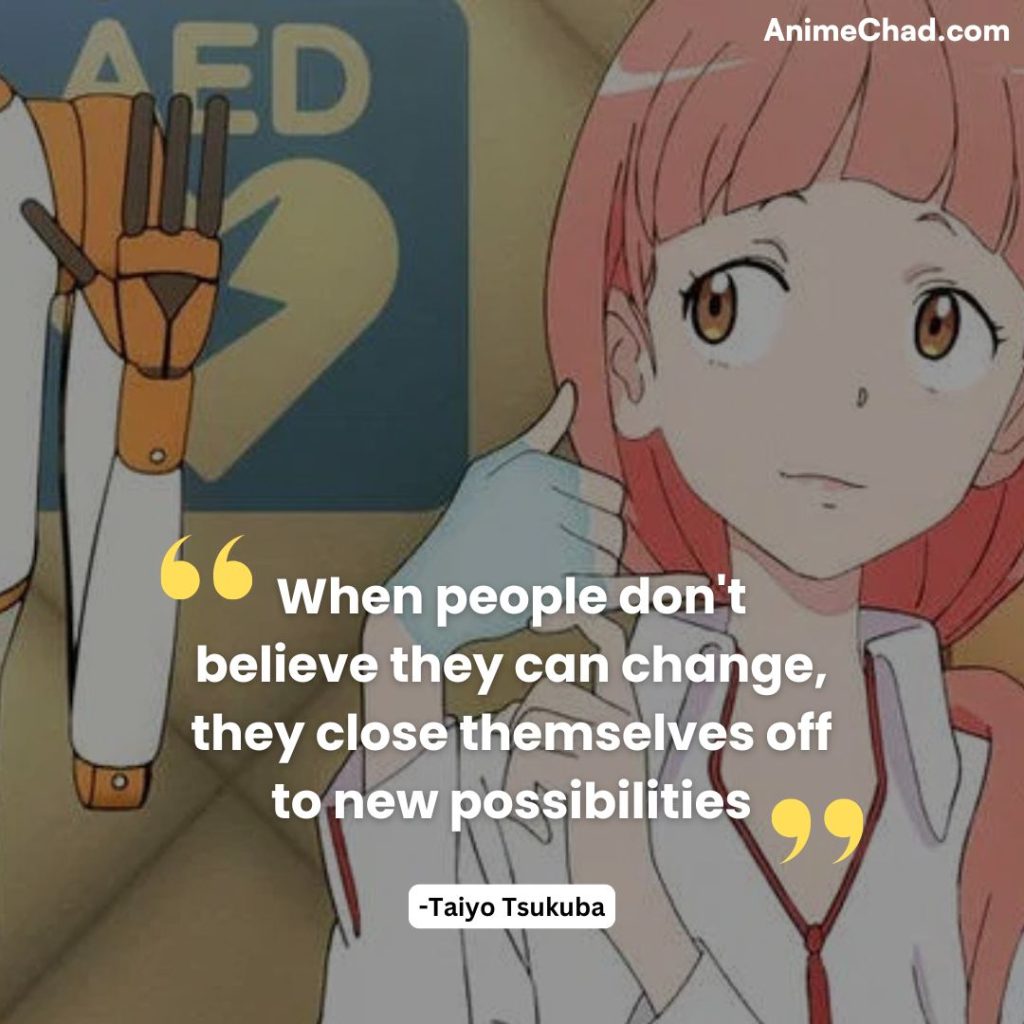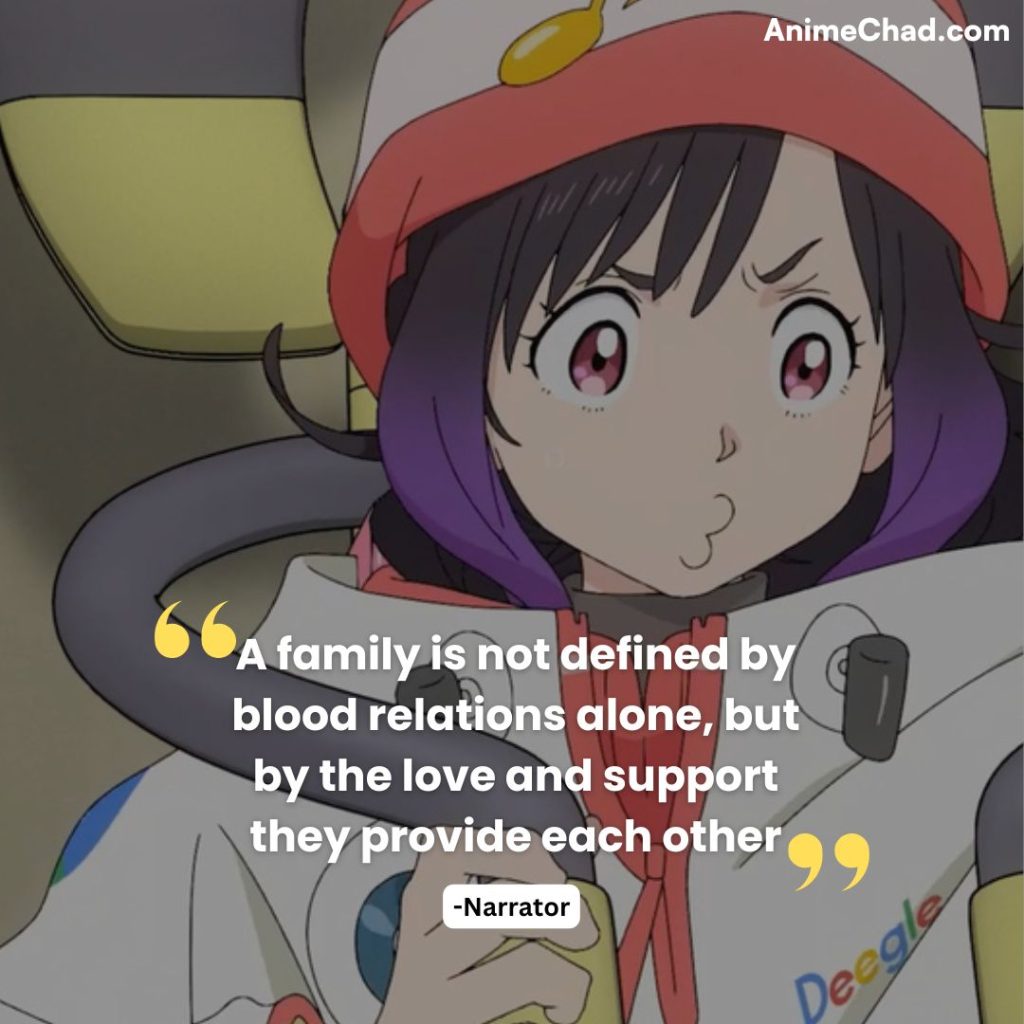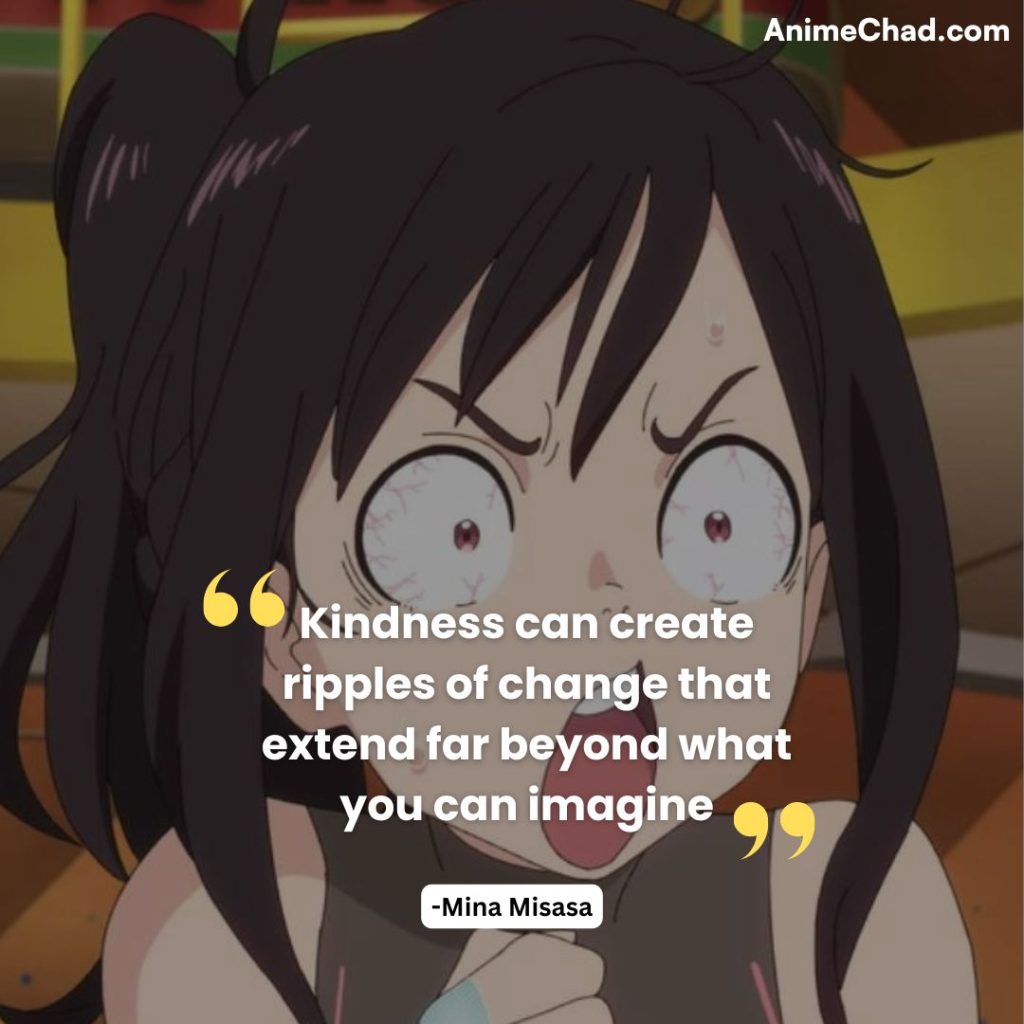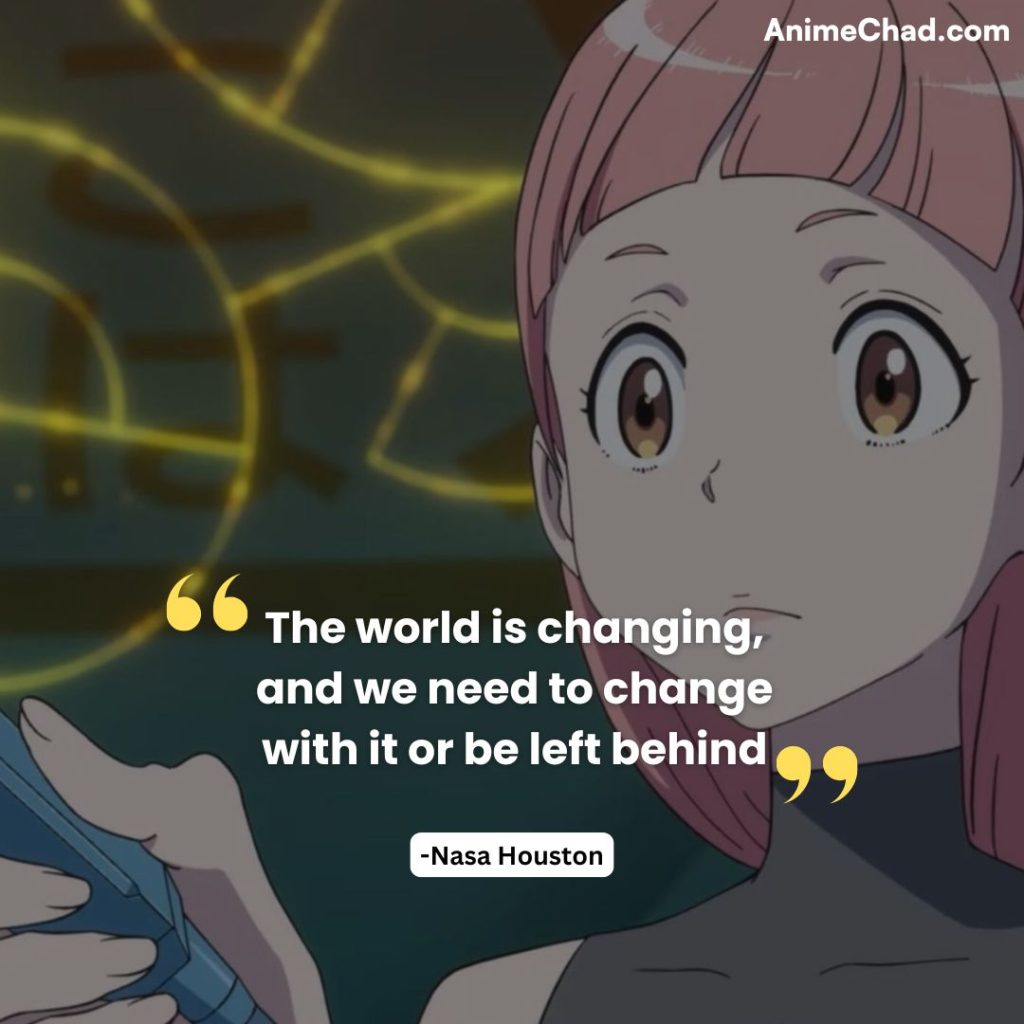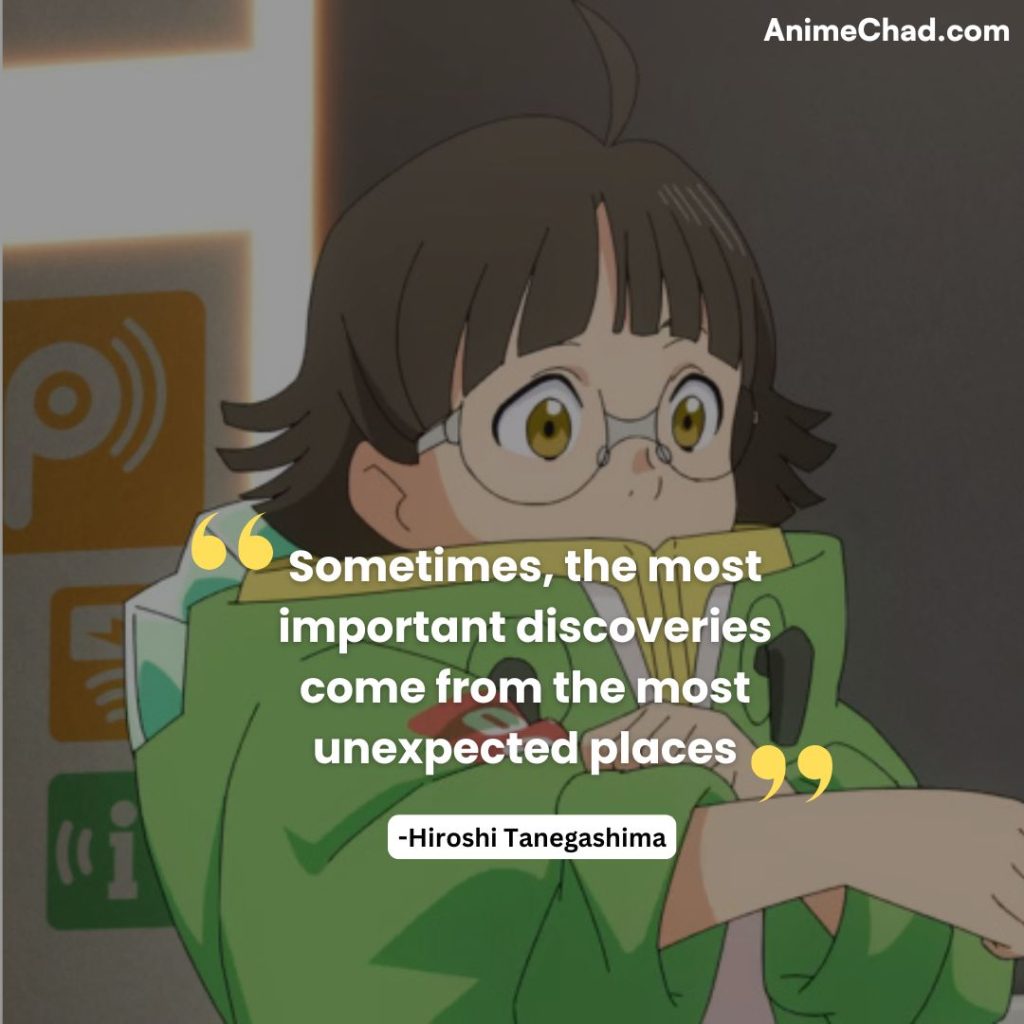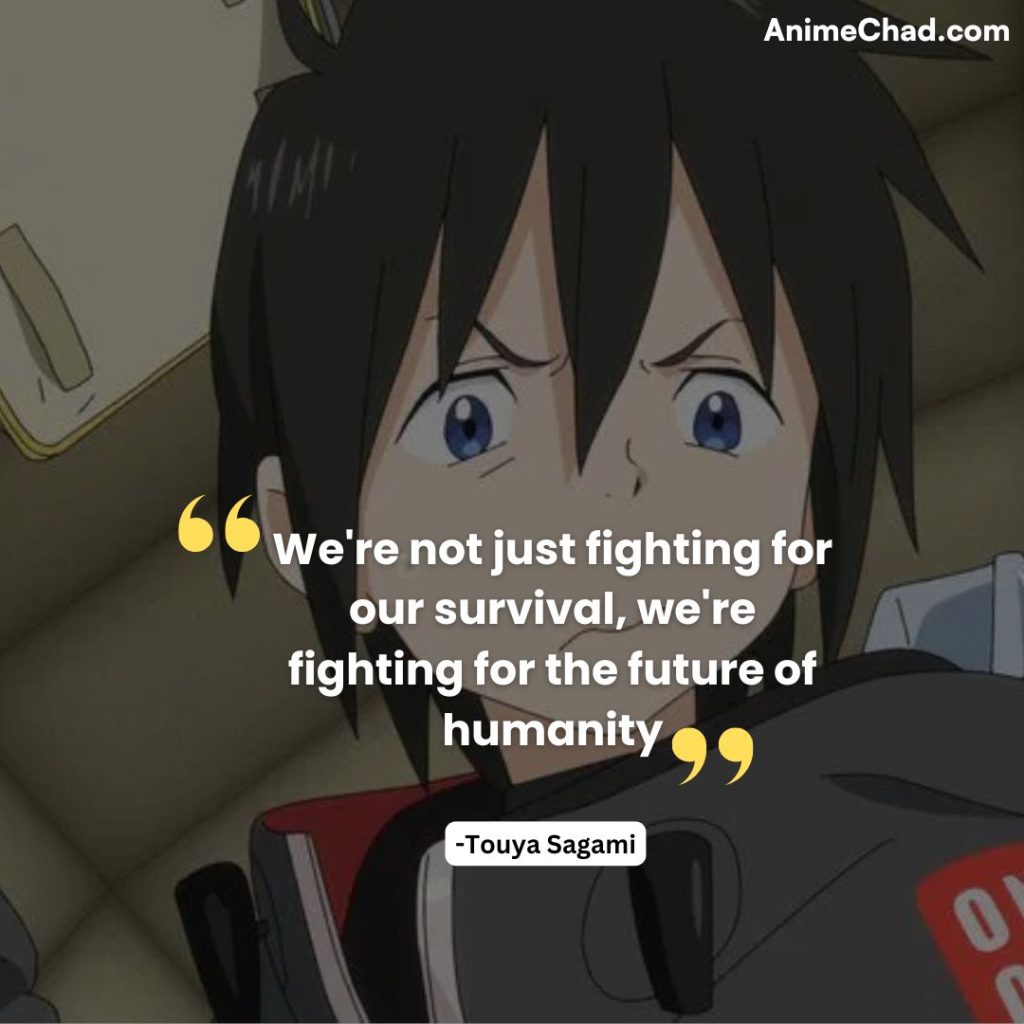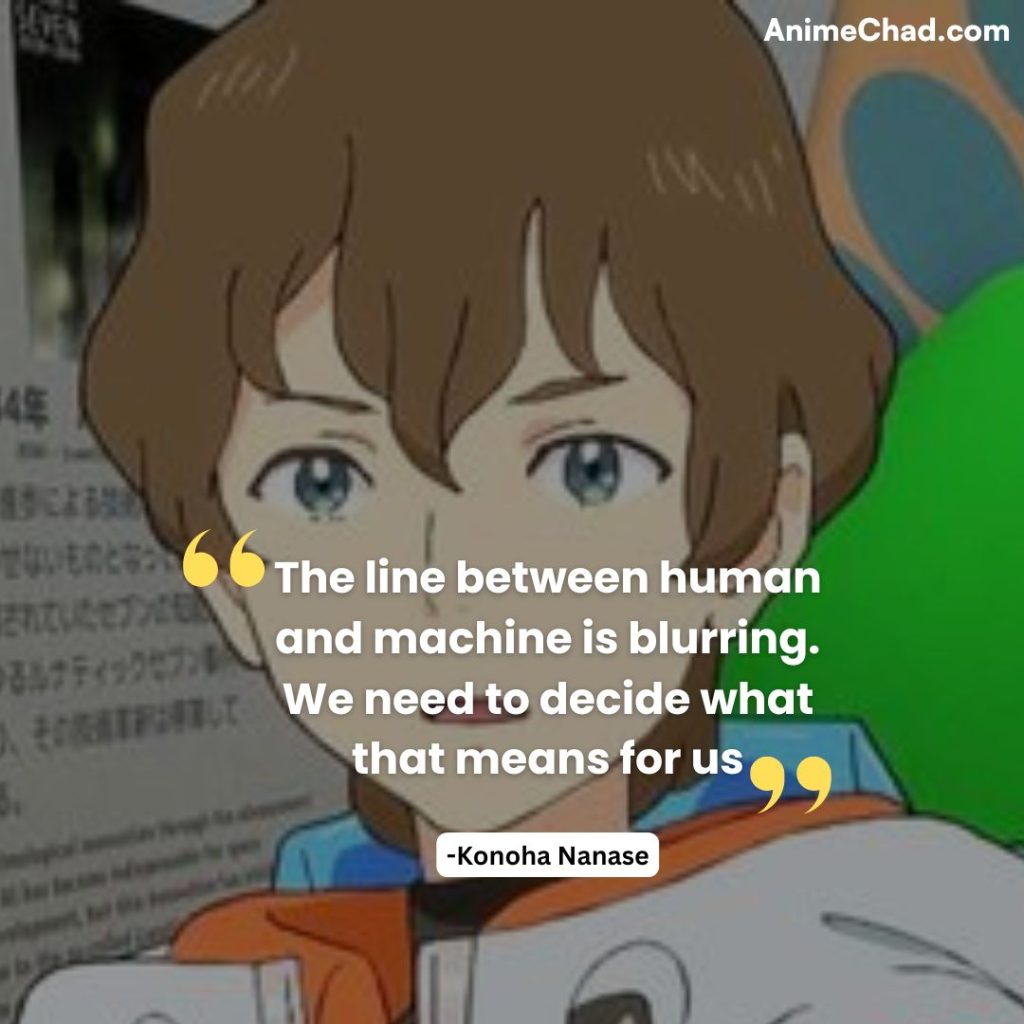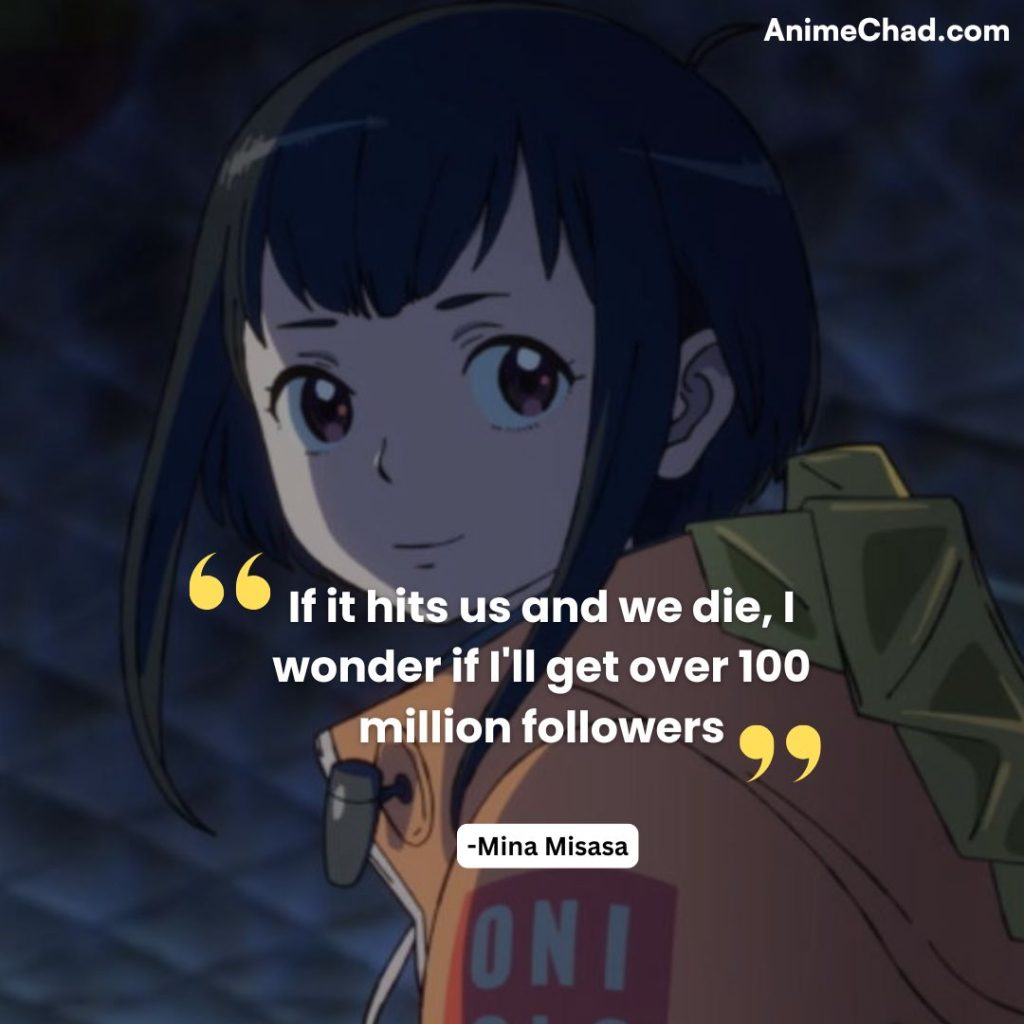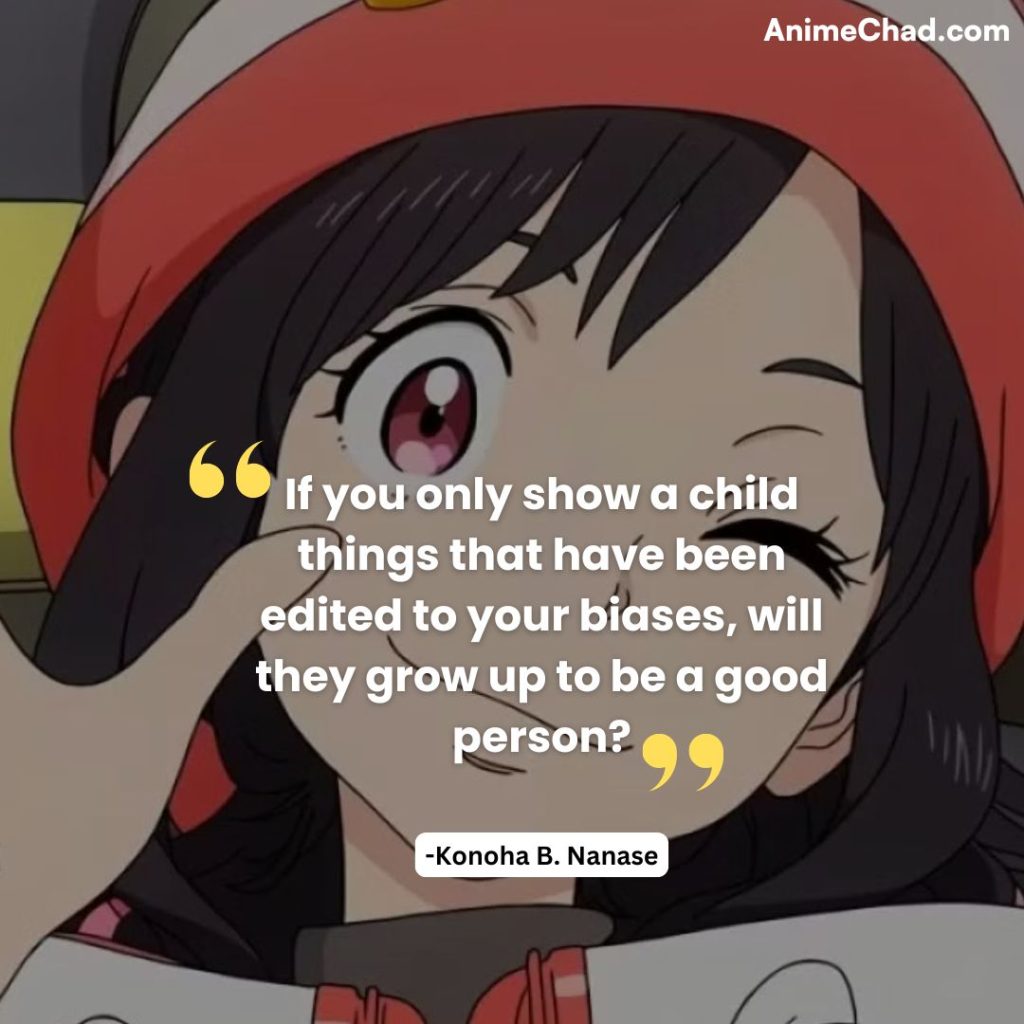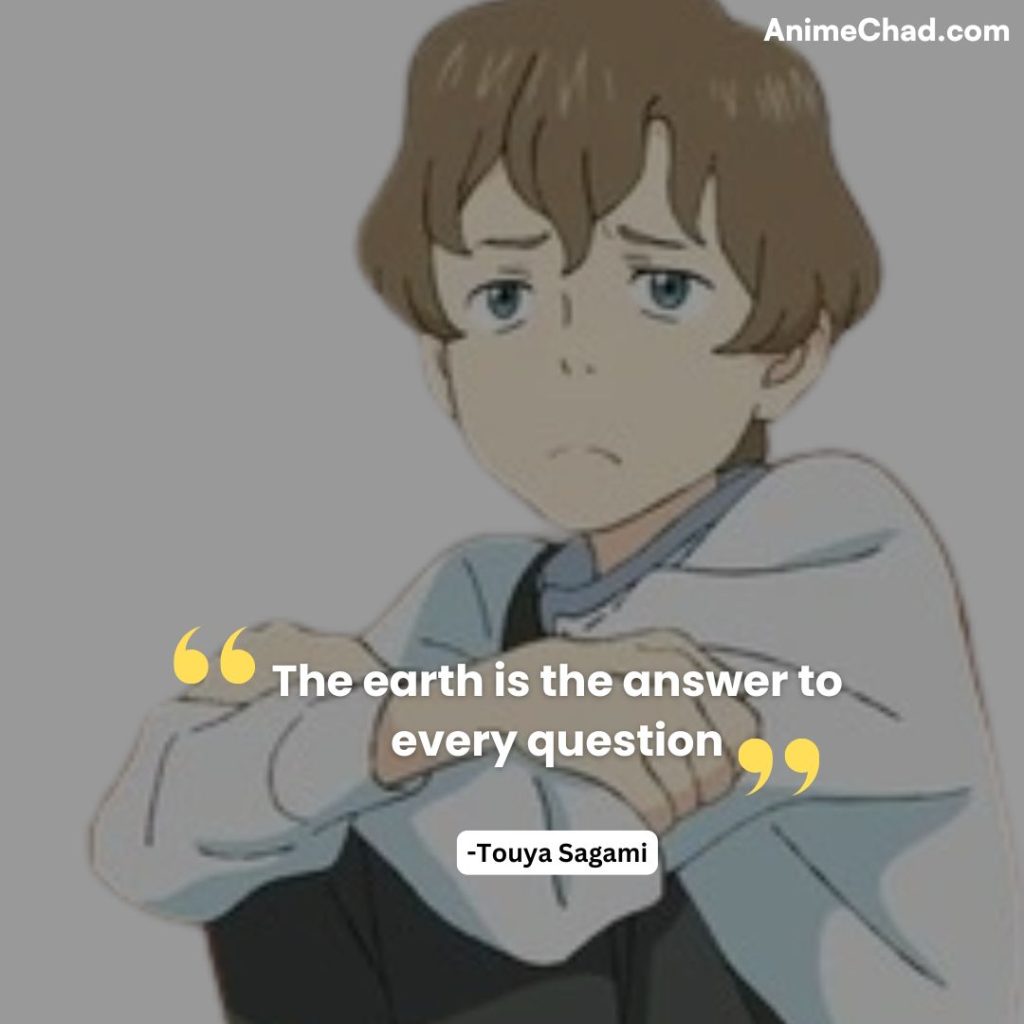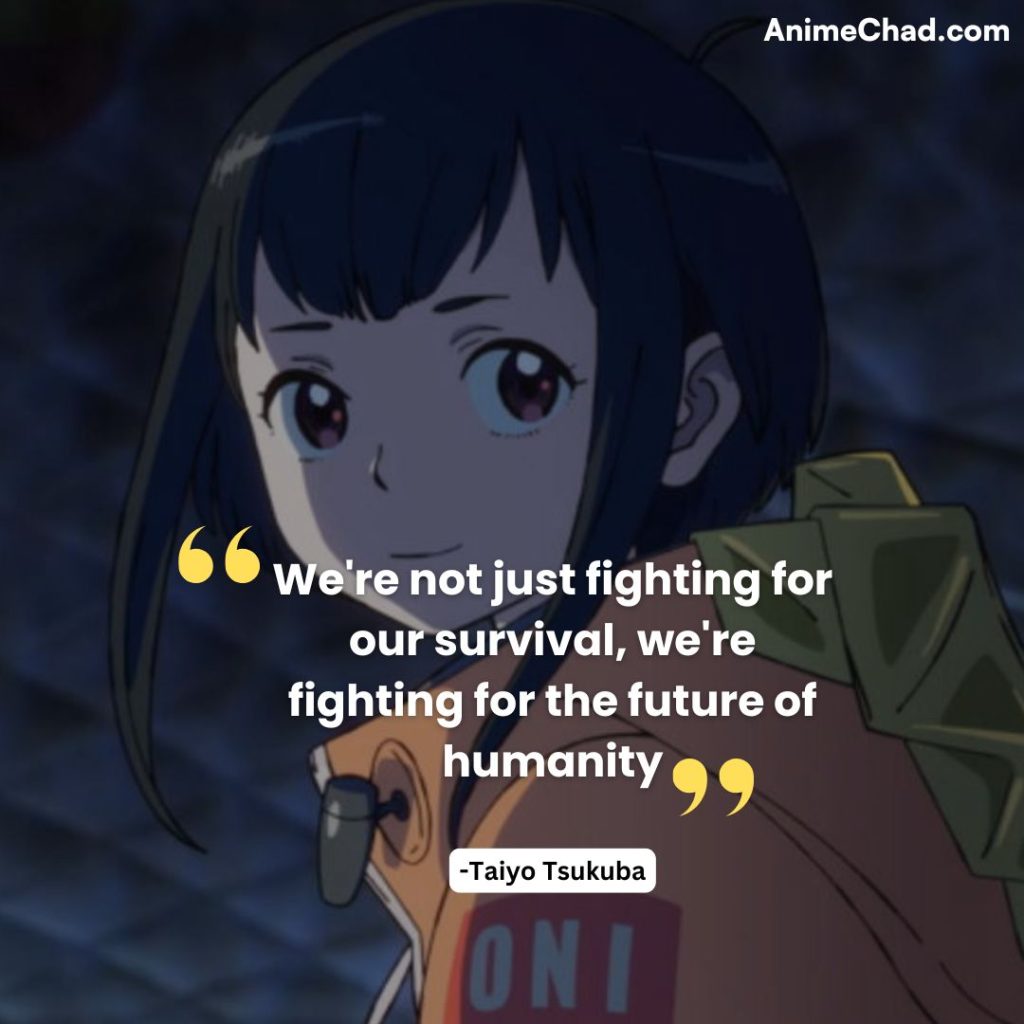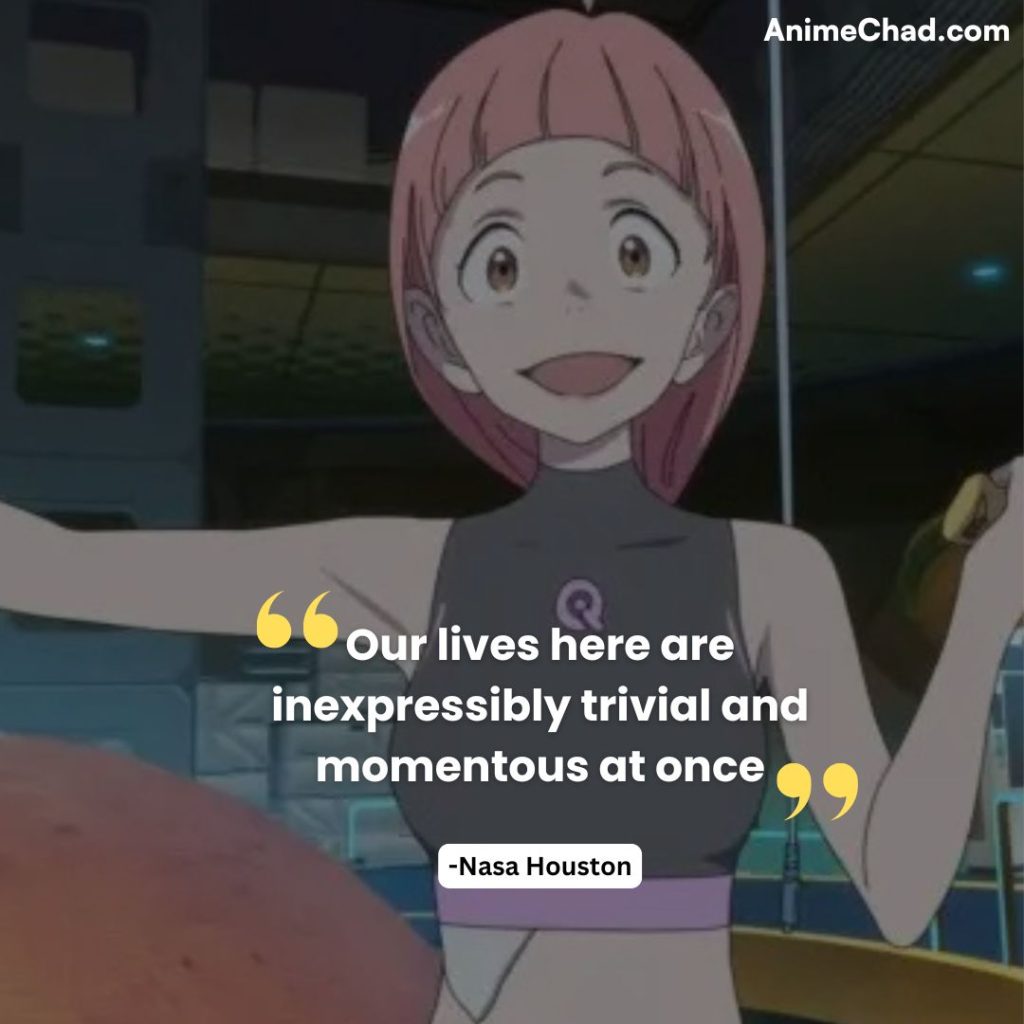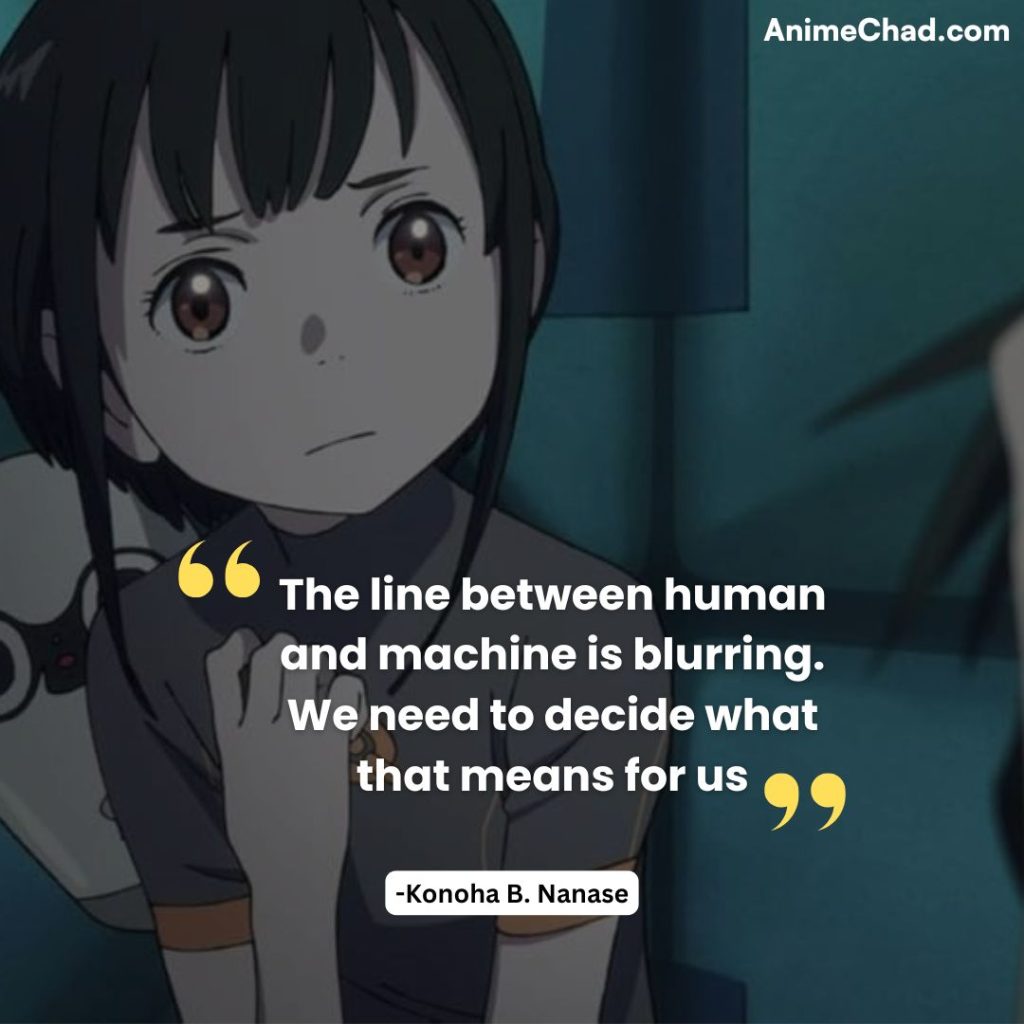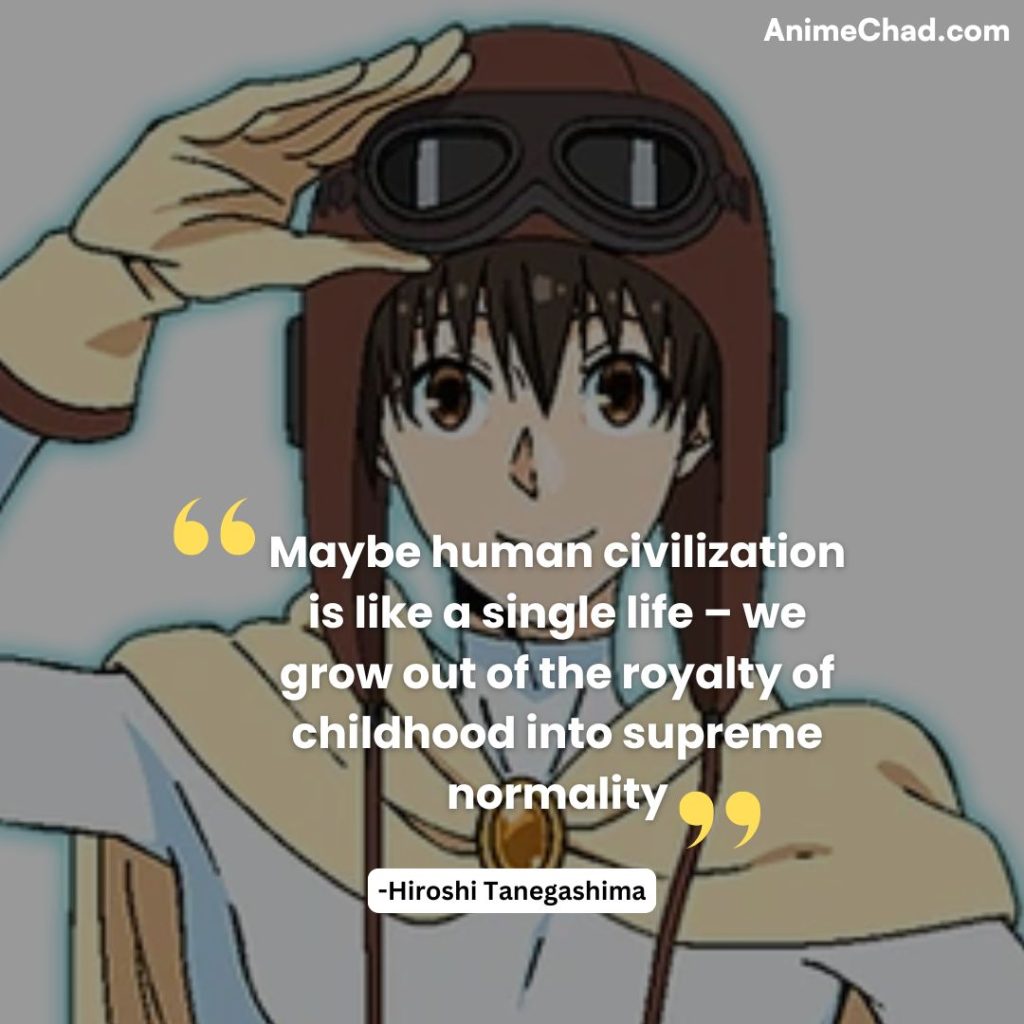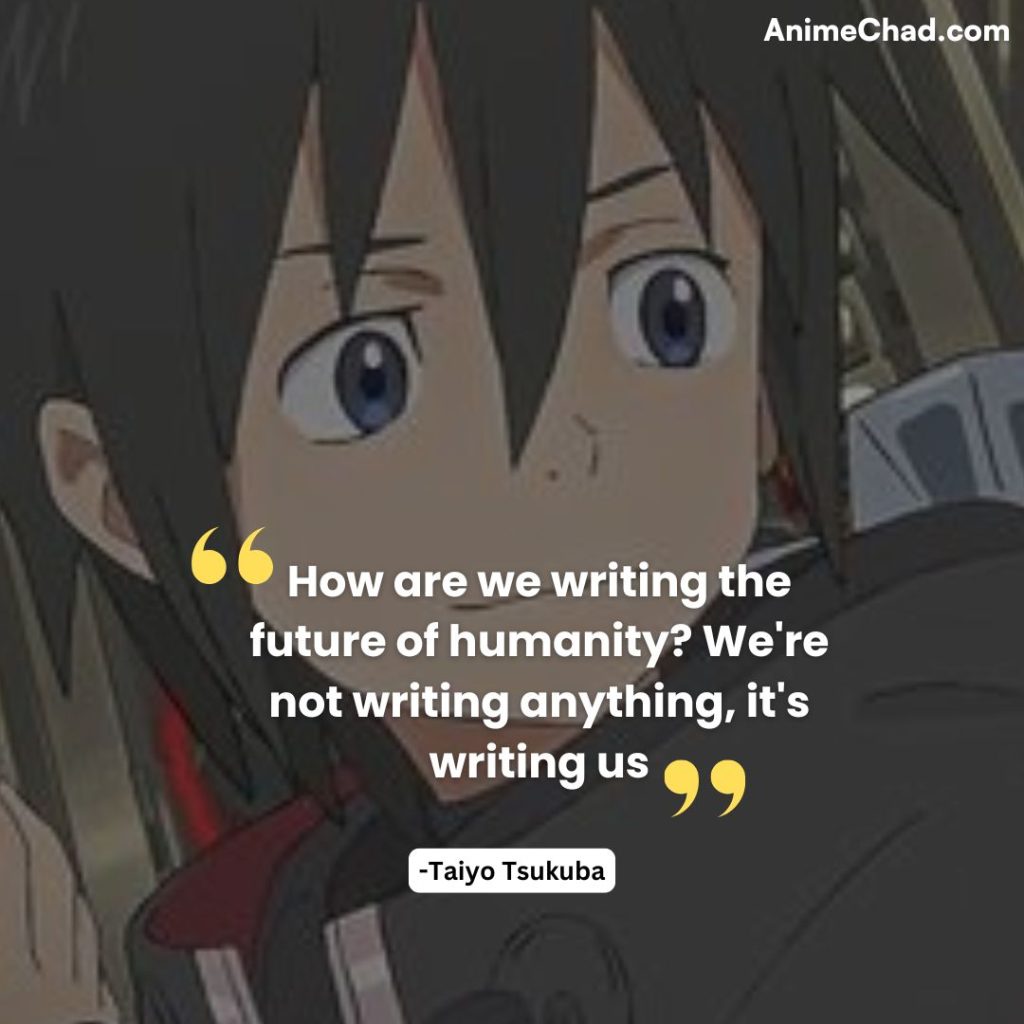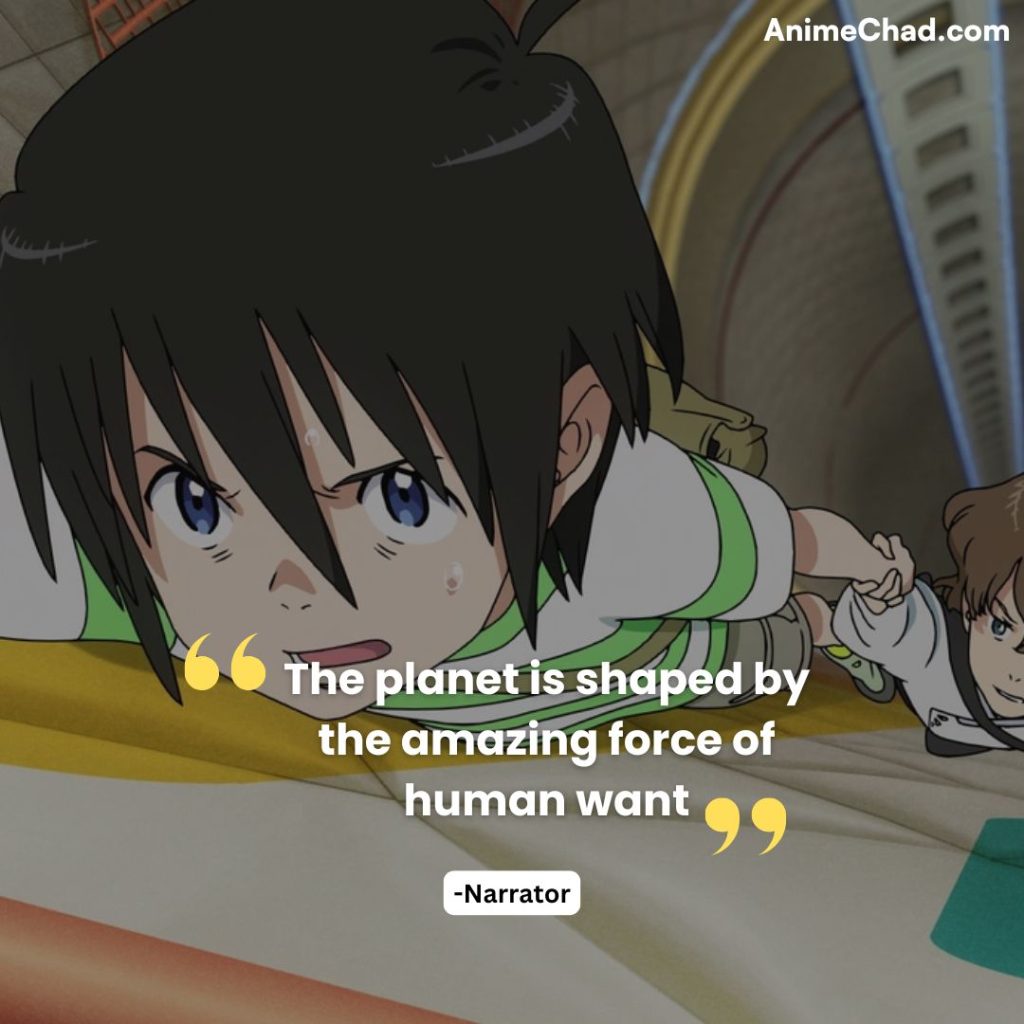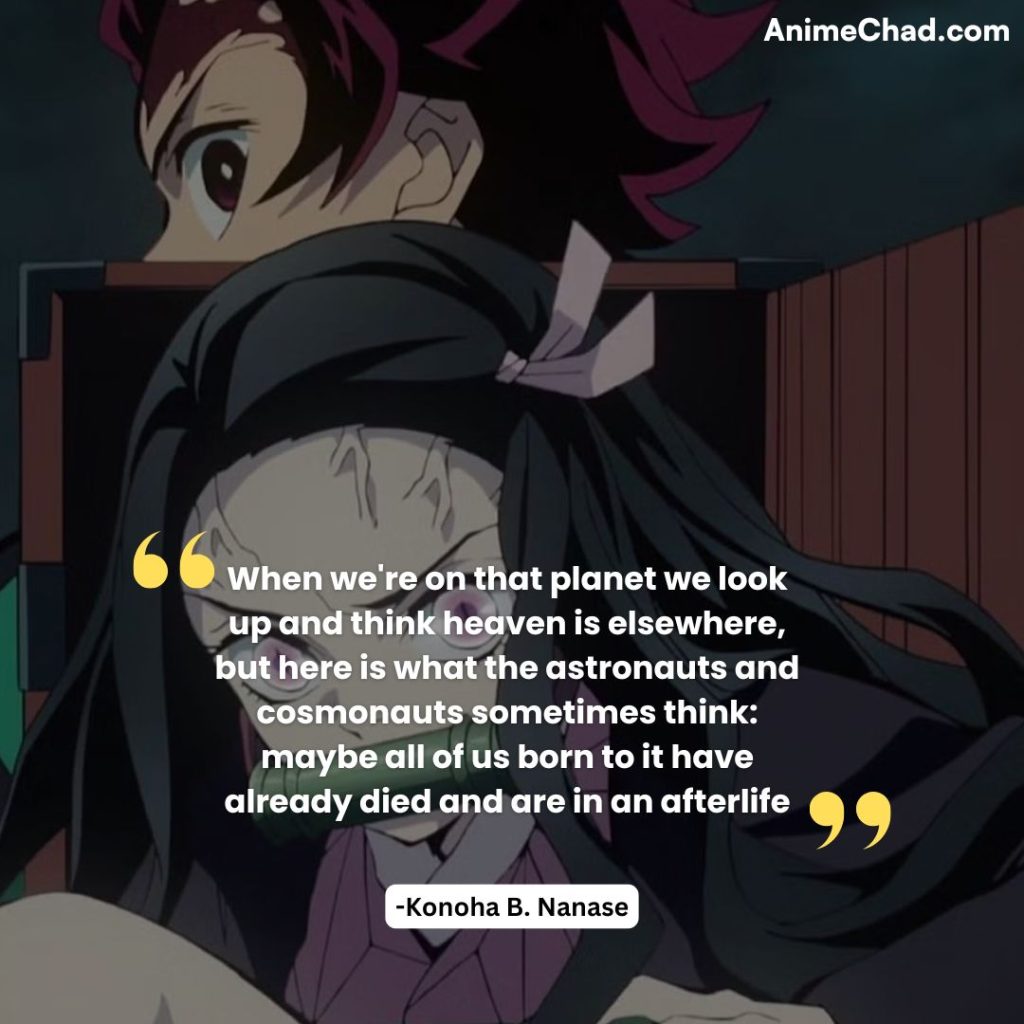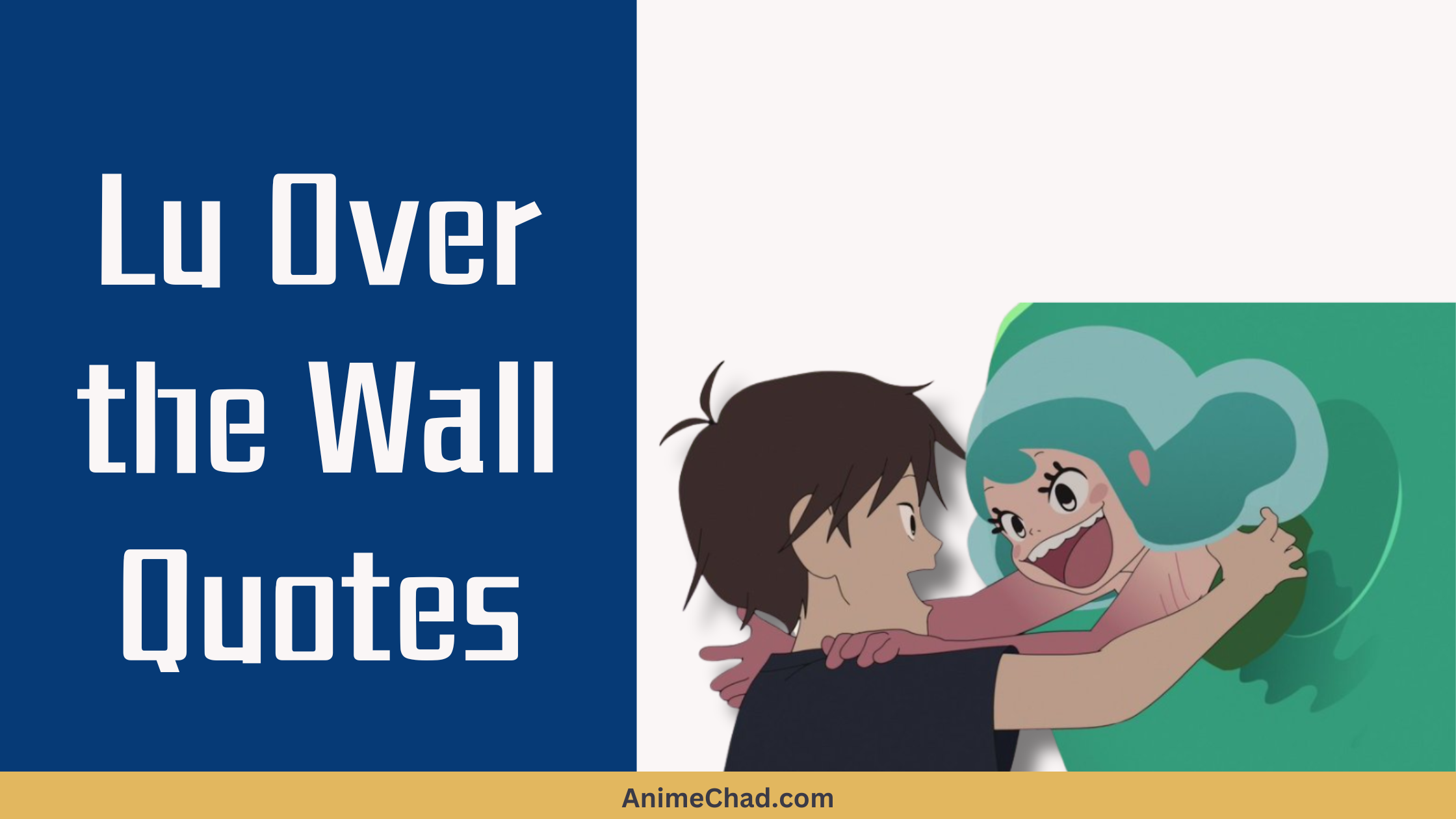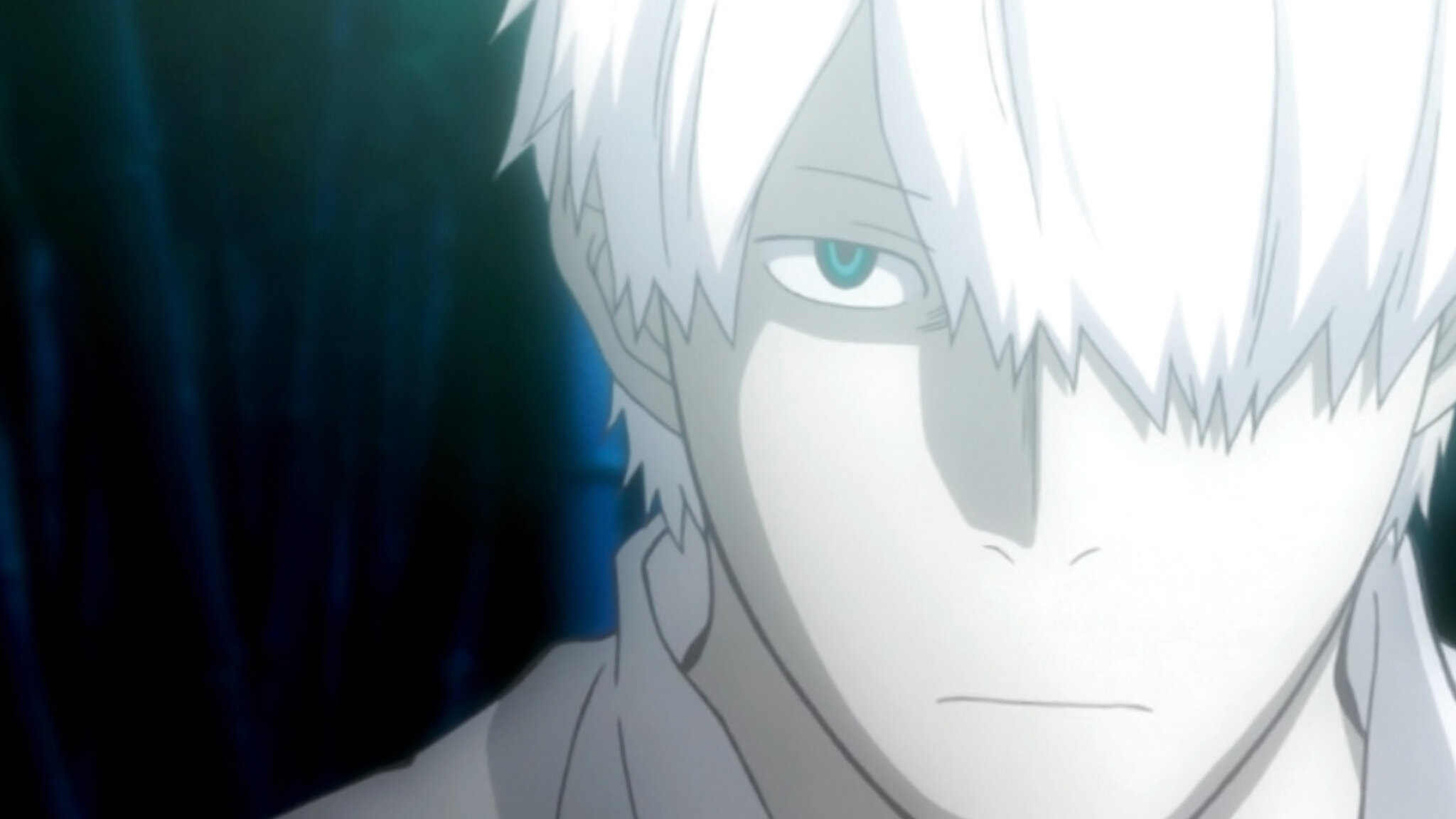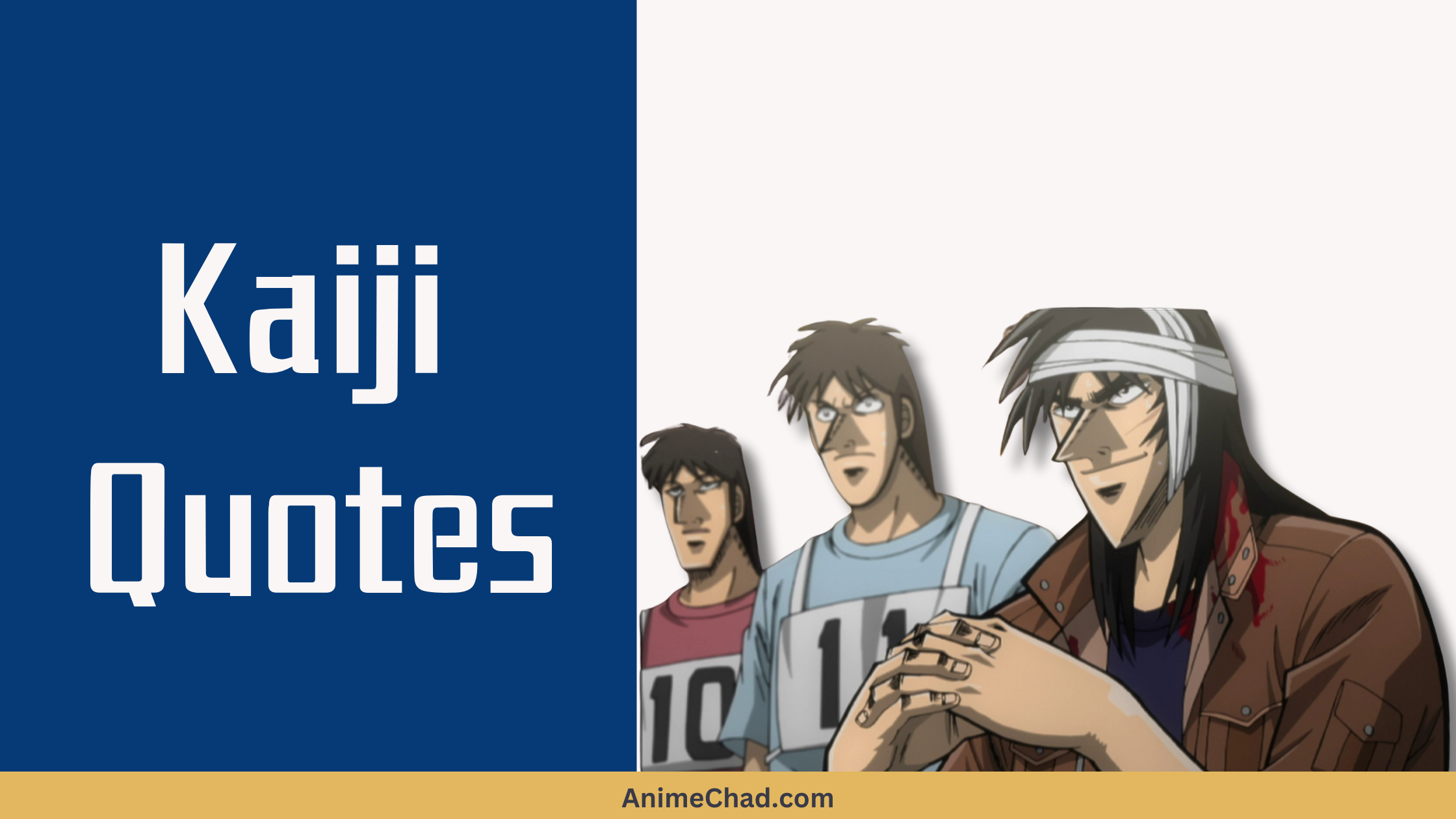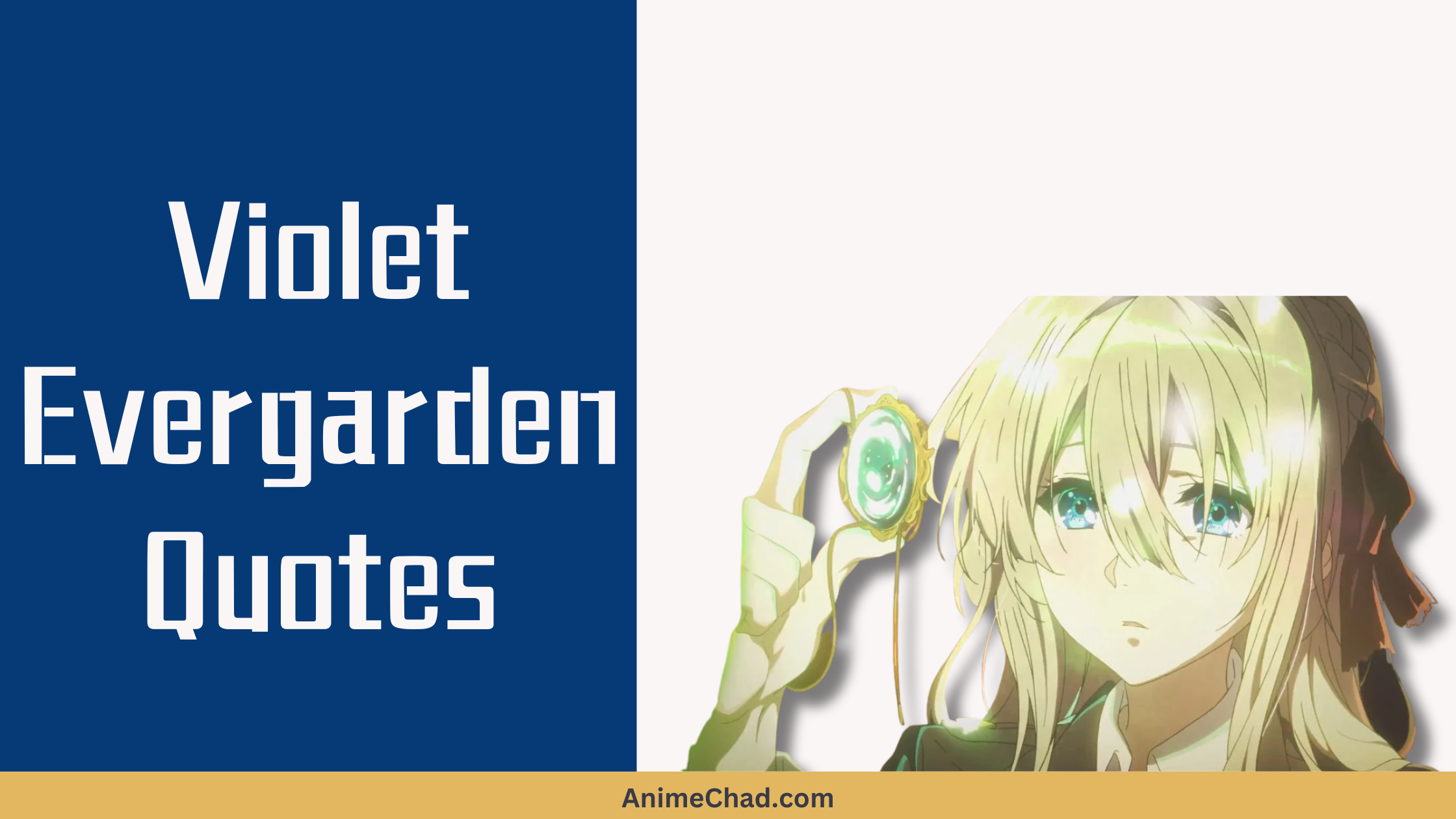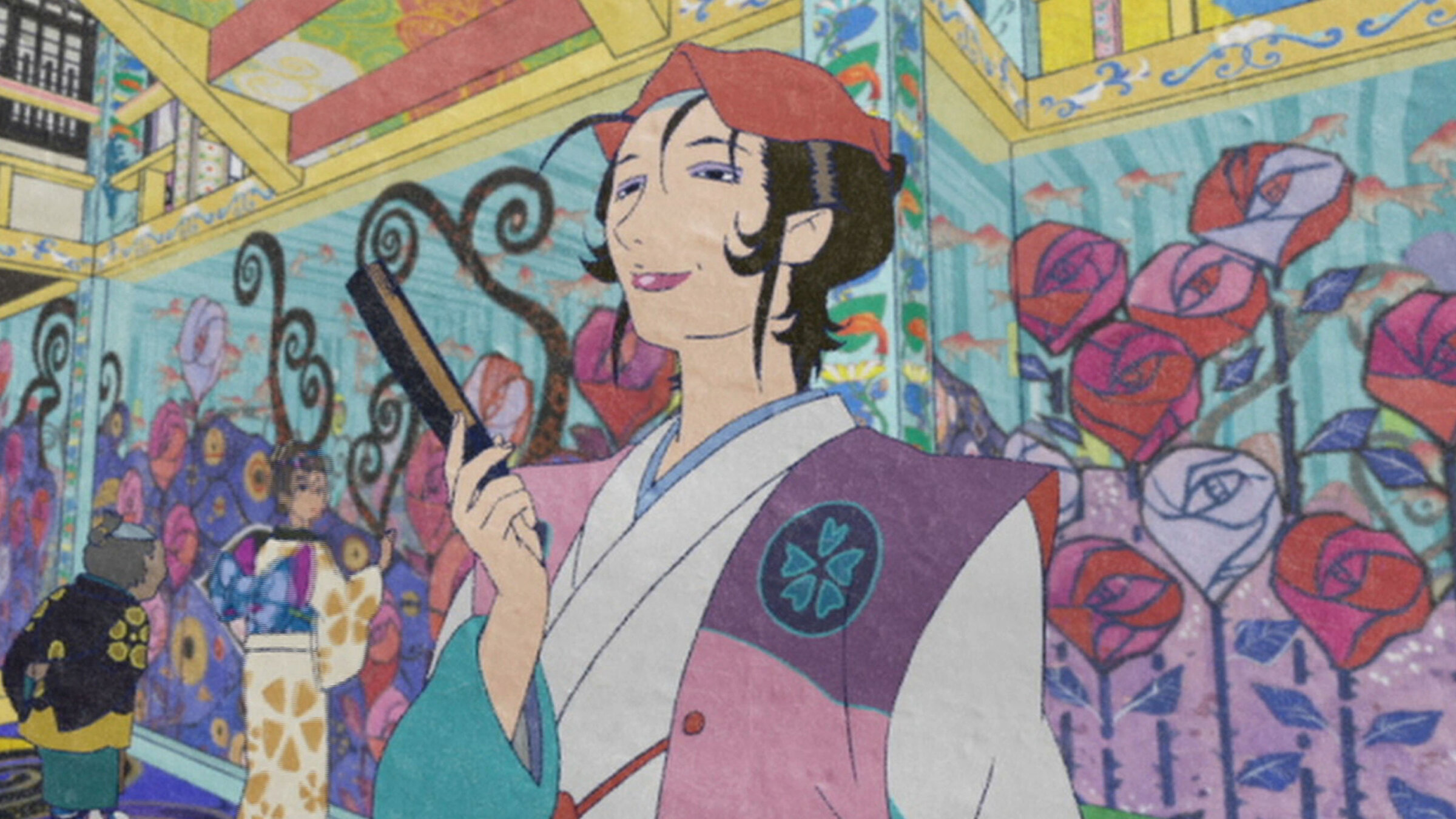The Orbital Children follows a group of young protagonists in 2045 as they navigate a crisis on a space station, exploring themes of artificial intelligence, human potential, and the relationship between Earth and space.
Set against a backdrop of technological advancement and environmental challenges, the series delves into the complexities of human nature and our future in space.
This collection highlights 25 impactful quotes that showcase character development and the series’ core themes.
If children find something interesting, they’ll use it. They might use it in interesting ways that confound adults, too
(Interview quote)
Mitsuo Iso
Creator’s insight into the series’ focus on children’s unique perspective and adaptability in a technologically advanced future.
I receive humanitarian assistance from Deegle Corporation for free … I’m very thankful the Deegle Corporation contributes to society by valuing people over profits
(Episode 1: “Anshin”)
Touya Sagami
Touya’s scripted speech reveals the corporate influence on space colonization and his inner conflict.
Earth is the cradle of humanity, but one cannot live in a cradle forever
(Referenced in series)
Konstantin Tsiolkovsky
This quote underpins the series’ exploration of humanity’s expansion into space and its challenges.
Nothing is more important to me than family. So I’m not going to let somebody swoop in and steal it away from me
(Episode 6: “The Orbital Children”)
Anya Forger
Anya’s determination highlights the theme of found family and the bonds formed in adversity.
Ignorance isn’t bliss. Ignorance is weakness. Ignorance is a sin
(Episode 3: “Seven”)
Touya Sagami
Touya’s perspective on knowledge reflects the series’ emphasis on understanding and questioning one’s environment.
The world may be filled with darkness, but there is always a glimmer of hope if you look for it
(Episode 5: “Anshin”)
Konoha Nanase
Konoha’s optimism contrasts with the dire situation, embodying the series’ theme of hope in adversity.
People who go [to space] are mostly pros, like researchers or the military, But I thought that was very ’20th century.’ I wanted to do something 21st Century
(Interview quote)
Mitsuo Iso
Creator’s vision for the series, emphasizing the democratization of space travel and its impact on society.
The whole world is one giant onion. Big and round, with one false layer after another
(Episode 2: “Debris”)
Narrator
Metaphor for the layers of deception and complexity in the series’ world, reflecting themes of truth-seeking.
When people don’t believe they can change, they close themselves off to new possibilities
(Episode 4: “Gravity”)
Taiyo Tsukuba
Taiyo’s insight reflects the series’ theme of personal growth and adaptability in the face of challenges.
A family is not defined by blood relations alone, but by the love and support they provide each other
(Episode 6: “The Orbital Children”)
Narrator
Encapsulates the core message of found family and bonds formed through shared experiences in space.
Kindness can create ripples of change that extend far beyond what you can imagine
(Episode 5: “Anshin”)
Mina Misasa
Mina’s observation underscores the series’ belief in small acts of kindness impacting larger societal change.
The world is changing, and we need to change with it or be left behind
(Episode 3: “Seven”)
Nasa Houston
Nasa’s statement reflects the series’ theme of adaptation to technological and environmental changes.
Sometimes, the most important discoveries come from the most unexpected places
(Episode 4: “Gravity”)
Hiroshi Tanegashima
Hiroshi’s realization highlights the series’ emphasis on innovation and unconventional problem-solving.
We’re not just fighting for our survival, we’re fighting for the future of humanity
(Episode 5: “Anshin”)
Touya Sagami
Touya’s declaration underscores the high stakes and broader implications of their struggle in space.
The line between human and machine is blurring. We need to decide what that means for us
(Episode 2: “Debris”)
Konoha Nanase
Konoha’s reflection on AI and humanity touches on the series’ exploration of technological ethics.
If it hits us and we die, I wonder if I’ll get over 100 million followers
(Episode 1: “Anshin”)
Mina Misasa
Mina’s dark humor highlights the series’ exploration of social media’s impact on youth in a technologically advanced future.
If you only show a child things that have been edited to your biases, will they grow up to be a good person?
(Episode 5: “The Orbital Children”)
Konoha B. Nanase
Konoha’s question reflects the series’ theme of information control and its effects on child development.
The earth is the answer to every question
(Episode 3: “Seven”)
Touya Sagami
Touya’s realization emphasizes the series’ focus on humanity’s connection to Earth despite technological advancements.
We’re not just fighting for our survival, we’re fighting for the future of humanity
(Episode 4: “Gravity”)
Taiyo Tsukuba
Taiyo’s declaration underscores the high stakes and broader implications of their struggle in space.
Our lives here are inexpressibly trivial and momentous at once
(Episode 2: “Debris”)
Nasa Houston
Nasa’s reflection captures the paradox of human existence in space, a key theme in the series.
The line between human and machine is blurring. We need to decide what that means for us
(Episode 5: “The Orbital Children”)
Konoha B. Nanase
Konoha’s observation touches on the series’ exploration of AI ethics and human-machine relationships.
Maybe human civilization is like a single life – we grow out of the royalty of childhood into supreme normality
(Episode 3: “Seven”)
Hiroshi Tanegashima
Hiroshi’s insight reflects the series’ theme of humanity’s place in the universe and personal growth.
How are we writing the future of humanity? We’re not writing anything, it’s writing us
(Episode 4: “Gravity”)
Taiyo Tsukuba
Taiyo’s realization highlights the series’ exploration of determinism versus free will in shaping humanity’s future.
The planet is shaped by the amazing force of human want
(Episode 2: “Debris”)
Narrator
This observation underscores the series’ theme of human impact on Earth and the consequences of unchecked desire.
When we’re on that planet we look up and think heaven is elsewhere, but here is what the astronauts and cosmonauts sometimes think: maybe all of us born to it have already died and are in an afterlife
(Episode 6: “The Orbital Children”)
Konoha B. Nanase
Konoha’s poetic reflection captures the series’ exploration of perspective and the profound impact of viewing Earth from space.

